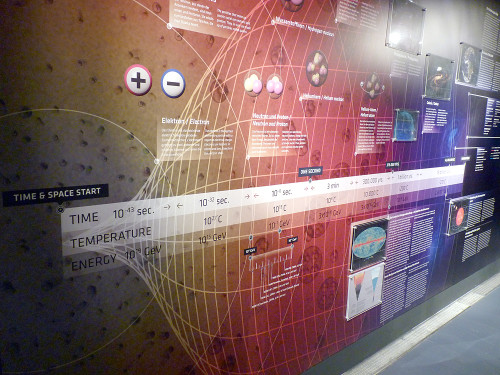ⓩ ALICE (A Large Ion Collider Experiment)
For ALICE, the Large Hadron Collider (LHC) will collide lead ions to recreate the conditions just after the Big Bang under laboratory conditions. The data obtained will allow physicists to study a state of matter known as quark gluon plasma, which is believed to have existed soon after the Big Bang.
ⓨ ATLAS
ATLAS is one of two general-purpose detectors at the LHC. It will investigate a wide range of physics, including the search for the Higgs boson, extra dimensions, and particles that could make up dark matter. ATLAS will record sets of measurements on the particles created in collisions –
their paths, energies, and their identities.
ⓧ CMS (Compact Muon Solenoid)
The CMS experiment uses a general-purpose detector to investigate a wide range of physics, including the search for the Higgs boson, extra dimensions, and particles that could make up dark matter. Although it has the same scientific goals as the ATLAS experiment, it uses different technical solutions and design of its detector magnet system to achieve these.
ⓑ LHCb (Large Hadron Collider beauty)
The LHCb experiment will help to understand why we live in a Universe
that appears to be composed almost entirely of matter, but no antimatter.
Ⓖ WLCG (World Wide LHC Computing Grid)
A distributed computing and data storage infrastructure.
